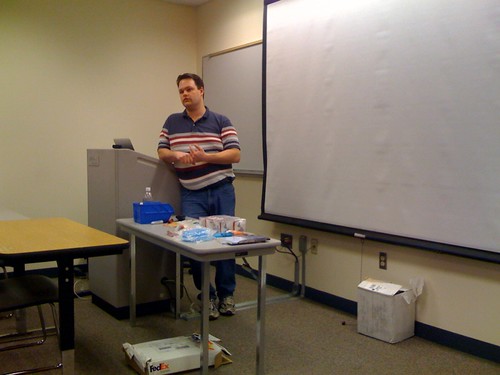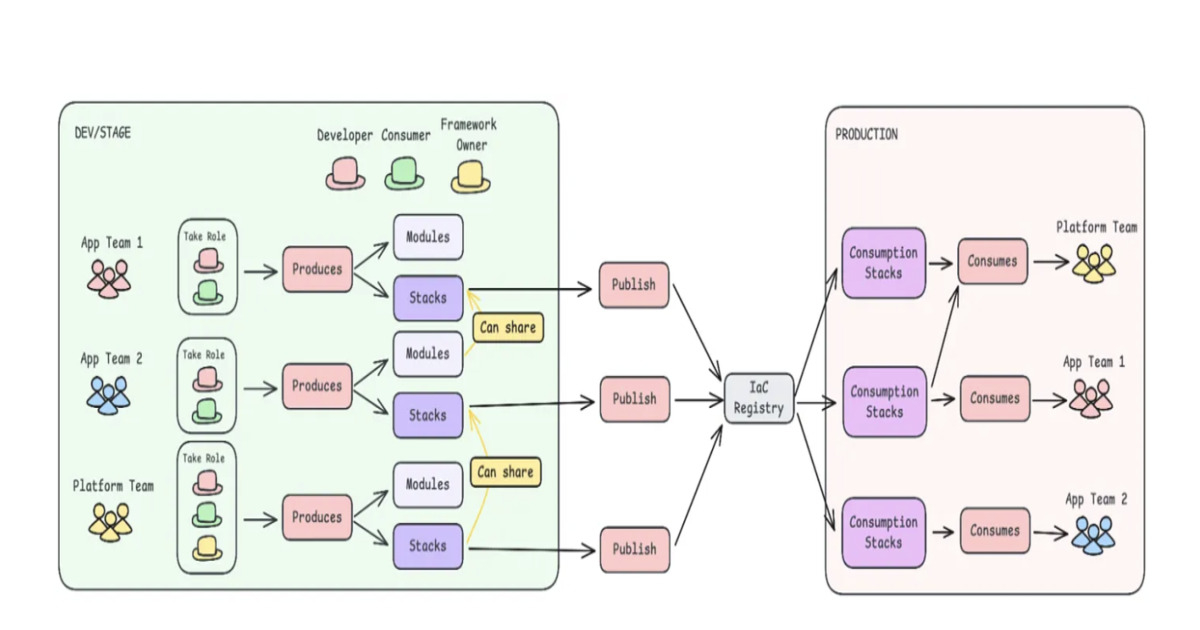Codetown
Codetown ::: a software developer's community
OrlandoJUG on Maven Jan, '10

Brian Fox gave a presentation on Maven this month at the OrlandoJUG.

Maven has matured into a more user friendly tool, according to Brian. His company, Sonatype, supports Maven in the commercial world. They've published books as well.

I must admit, although the talk was informative, I didn't walk away feeling like I could sit down and start using Maven based on what I learned. This was an overview of Maven's features, not a hands on workshop.
I will say, however, that Maven has wide acceptance as a powerful, open source tool to help in building projects that use multiple components. Last time I used it, I had a very difficult time getting it configured. It just wasn't user friendly. I've learned over the years now that it's often not me, but fragile tools and documentation that cause failures under time contraints.
Yucch!
Well, now we have a set of books on Maven and Sonatype's support to help us along.
I'm ready to give it another shot when the occasion arises.
After the meeting, we chatted about cellphones. David Harris showed us his new Android phone. A spirited conversation ensued. A few people have commented that Java folk should show more discernment in their choice of cellphone, namely iPhones. We talked about iPhone being a closed box. How Apple does everything many folks hate about Microsoft but is forgiven because...because they have "good products". Provocative? You bet. That assertion was countered with a comment that "there's nothing wrong with making money" referring to the two camps that sometimes don't see eye to eye: open source and commercial apps.
We had some good pizza, cold drinks and stimulating conversation. Like the sound of it? Come on out to next month's OrlandoJUG, or GatorJUG...or your local user group meeting. We had folks from local software firms I had never heard of, who have been in town as long as I have. What's cool about that? Well, it's not just a hobby! We like work. Work is good. The trick is to find 1) work that's 2) interesting and 3) pays a fair wage. Who ya gonna call? I prefer to throw the party rather than wait around to be invited. You, too can be the master of your own destiny. Get up, get out and meet some folks. Share what you know and learn some stuff while filling your belly with good food and have a good time!
Comment
-
Comment by Zemian Deng on January 31, 2010 at 1:13pm
-
Hey Mike,
Sorry to hear you are not a fan of Maven yet. Well, I don't think you are the only one. This link got mentioned in javaposses.com last broadcast. http://kent.spillner.org/blog/work/2009/11/14/java-build-tools.html. Doesn't sound like that guy like Maven at all. :-P
There few things in Maven that bugs me too. Like its verboseness in xml config, the many defaults values in for frequently used plugins are outdated. Like compiler target source is not default to 1.5 or higher, default java source is not UTF-8, default junit comes with a useless xml out of system defaults. I have to change these on most of my project since they seems not up-to-date. But these seems to be minor things. It's configurable and I just change the values and move on.
Having said that, I think Maven is a wonderful tool. Like any piece of software, we ought to use it as it was designed to take a full advantage of it. I have used for many projects and it solved most of my need as a build tool. Sonatype's repository manager is pretty awesome. It has a simple user interface and easy to manage. It's fantastic to setup as a internal repository in a company.
To gain more confidence, you should check out how few of larger open source projects are using Maven. Obviously Apache is using maven like crazy :-P. But hey Apache produce some great some software, and maven helps them get there. Check out JBoss, originally use Ant for everything, and now they switched to entirely Maven based build starting jboss6. MuleESB and Atlassin JIRA are couple of my favorite and successfully software that I know they use Maven heavily for their dev.
Notes
Welcome to Codetown!
 Codetown is a social network. It's got blogs, forums, groups, personal pages and more! You might think of Codetown as a funky camper van with lots of compartments for your stuff and a great multimedia system, too! Best of all, Codetown has room for all of your friends.
Codetown is a social network. It's got blogs, forums, groups, personal pages and more! You might think of Codetown as a funky camper van with lots of compartments for your stuff and a great multimedia system, too! Best of all, Codetown has room for all of your friends.
Created by Michael Levin Dec 18, 2008 at 6:56pm. Last updated by Michael Levin May 4, 2018.
Looking for Jobs or Staff?
Check out the Codetown Jobs group.
InfoQ Reading List
Google Launches Automated Review Feature in Gemini CLI Conductor

Google has enhanced its Gemini CLI extension, Conductor, by adding support for automated reviews. The company says this update allows Conductor "to go beyond just planning and execution into validation", enabling it to check AI-generated code for quality and adherence to guidelines, strengthening confidence, safety, and control in AI-assisted development workflows.
By Sergio De SimoneFrom Central Control to Team Autonomy: Rethinking Infrastructure Delivery

Adidas engineers describe shifting from a centralized Infrastructure-as-Code model to a decentralized one. Five teams autonomously deployed over 81 new infrastructure stacks in two months, using layered IaC modules, automated pipelines, and shared frameworks. The redesign illustrates how to scale infrastructure delivery while maintaining governance at scale.
By Leela KumiliGoogle Publishes Scaling Principles for Agentic Architectures

Researchers from Google and MIT published a paper describing a predictive framework for scaling multi-agent systems. The framework shows that there is a tool-coordination trade-off and it can be used to select an optimal agentic architecture for a given task.
By Anthony AlfordGoogle Cloud Brings Full OpenTelemetry Support to Cloud Monitoring Metrics

Google Cloud recently unveiled broad support for the OpenTelemetry Protocol (OTLP) in Cloud Monitoring, marking a step toward unifying telemetry collection across its observability stack.
By Craig RisiAWS Launches Agent Plugins to Automate Cloud Deployment

AWS launched Agent Plugins for AWS, providing AI coding agents with specialized deployment skills. The initial deploy-on-aws plugin transforms workflows by accepting commands like "deploy to AWS" and generating complete pipelines with architecture recommendations, cost estimates, and infrastructure code. Supported in Claude Code and Cursor, AWS claims 10-minute deployments versus hours manually.
By Steef-Jan Wiggers
© 2026 Created by Michael Levin.
Powered by
![]()
You need to be a member of Codetown to add comments!
Join Codetown